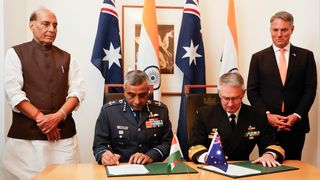The Russian campaign to hack the 2016 presidential election was designed to undermine confidence in American democracy. While potential collusion and the role of social media are the focus of current investigations, the tactical operation was much broader. It was comprised of cyber-attacks on politicians, government agencies, and the voting systems themselves. The full picture is only starting to be revealed. But the primary objectives have undoubtedly been achieved – domestic mistrust and political instability, as well as diminished American leadership capacity abroad.
Alliance 21 Fellow Ben Flatgard, former Director of Cybersecurity Policy on the National Security Council under President Obama was in conversation with Simon Jackman, CEO of the United States Studies Centre and discussed why Russian hacking proved so successful and how the United States, Australia, and other democracies might address the challenge of foreign interference in the future.








